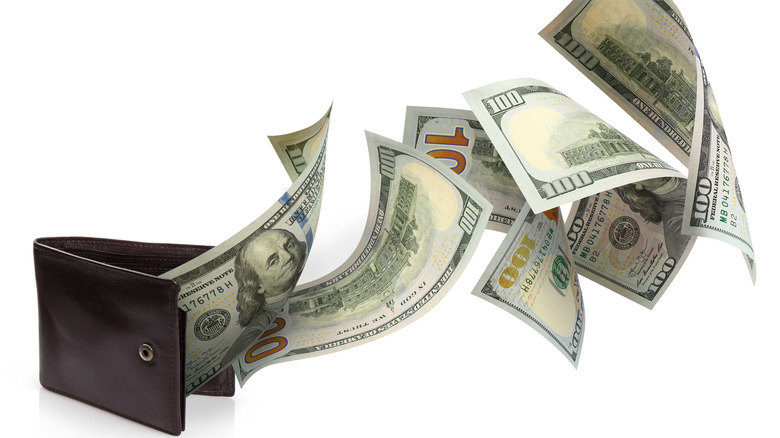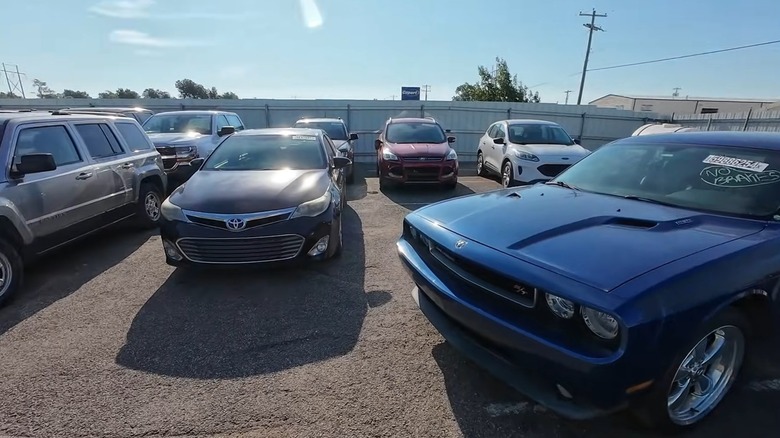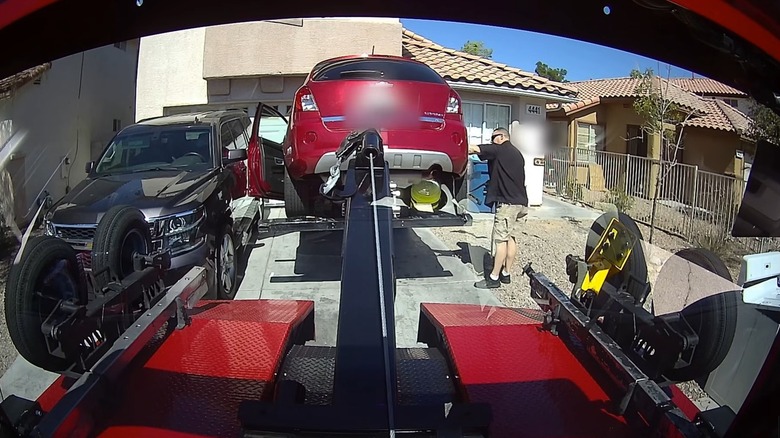
Unfortunately, buying a car usually requires a sizeable loan, along with regular payments that must be made on time. If you're struggling to keep up with your lender, you're not alone. According to Consumer Affairs, more than 1.2 million vehicles were repossessed in 2022. As the price of the average car has shot up 28% in the last five years, seven-year car loans are becoming normal.
Repossession typically occurs when you haven't made a payment on your car in 90 days, or around 3 months. And depending on the state, don't expect a heads-up or court order alerting you that the lender is coming after the car, as many aren't required to notify you. Next, your vehicle will be seized and stored. Then, the lender will either keep it, or sell it, potentially coming back to you for additional money if the car didn't fetch enough to cover the amount owed, in addition to repossession and storage costs.
First of all, you'll want to avoid repossession, if at all possible, by speaking with your lender before they take action. Many lenders will negotiate with you in terms of late or rescheduled payments, as a repossession is a lot of extra work for them with typically only around 30% of the loan value being returned per Debt.org. If, however, your car is repossessed, the first step will be inquiring how to get your belongings back, as personal items you left in your car at the time of repossession aren't part of the deal. Next, you can try to get your loan reinstated or attempt to buy the car back.
When you default on your car loan, the lender may choose to employ a specialist towing company to retrieve the vehicle. Unfortunately, this usually happens without first notifying you, however in certain states and circumstances, you may be alerted prior to the action. For instance, in Wisconsin, if your original loan amount isn't over $25,000, you have protection under the Wisconsin Consumer Act, which requires a written notice and a period of 15 days before repossession can occur. But, in many states, the action is swift and without warning, usually consisting of a tow truck pulling up, connecting to the car, and driving away.
However, it's important to know what is and isn't allowed in your state during a repossession. For example, in Massachusetts, a lawful repo must not violate the breach of peace. This means, it's unlawful to repossess a car with the driver inside it, involve physical violence, coercion, or intimidation, which transforms the situation into a law enforcement matter. Many states also prohibit repossession of vehicles which are inside a garage. In one case, a GM dealership was hit with $350,000 judgement for a wrongful repossession, so it's important to be aware of your state laws and contact the authorities and/or a lawyer if you feel your rights were breached.
 Marat Musabirov/Getty Images
Marat Musabirov/Getty Images
So, you're unable to keep up with your car payments due to financial hardship. Unfortunately, taking your wheels won't be the only negative in a repossession situation. The lender must hire someone to repossess the car, it must pay for it to be stored, and cover any sale or attorney charges. So, essentially, after you didn't have the funds to pay the monthly payment, the lender is now going to charge you more money in fees. While the exact amount depends on several factors, according to some law firms you could pay as much as $500 for the tow, and $75 daily for storage.
It isn't just the loss of your car you'll have to grapple with following a repossession, but also the lasting damage to your credit score. When your ride gets taken back by the lender, it creates a blemish on your record for seven years. Even worse, your credit score and ZIP code could raise your insurance rate by thousands of dollars. One of the significant factors that comprise a FICO Score is payment history, which is essentially used as an indicator of how much risk you present to lenders. Having a repossession on your file will make qualifying for future loans challenging, but can be overcome with better financial management practices.
 Auto Auction Rebuilds / YouTube.com
Auto Auction Rebuilds / YouTube.com
Even though your vehicle has been repossessed, there are still a few ways you may be able to get it back. If you agree to pay the entire balance of the car, including any late fees to the lender, you get your ride back free and clear. Of course, if you had that kind of scratch available from the get-go, this probably wouldn't have happened in the first place. Short of paying the entire thing off, you can work with the lender to reinstate the loan. This requires you paying the late loan payments (so you're caught up), and covering any lender fees as a result of the repossession.
Finally, you may be able to buy your car back, once the lender decides to put it up for auction. The lender must notify you prior to auctioning your vehicle, such as the location, day, and time the event is taking place, to allow you a chance to bid for it. In some cases, whether the lender is selling your car at auction or privately, you may have one last chance to get it back by paying off the loan in its entirety before any sale is finalized.

















